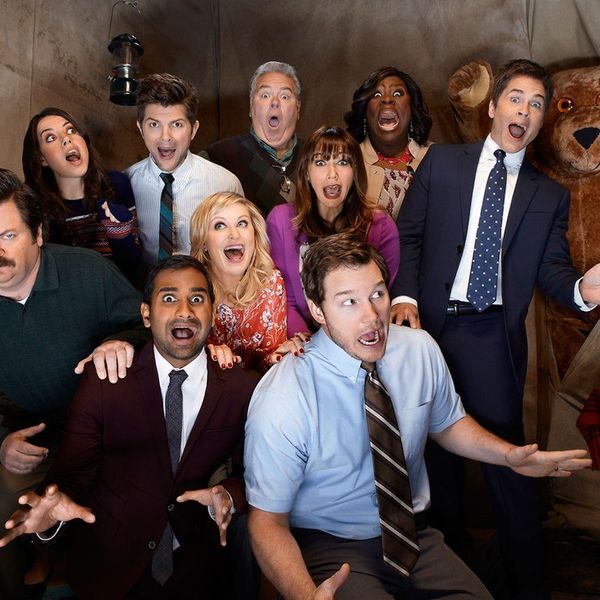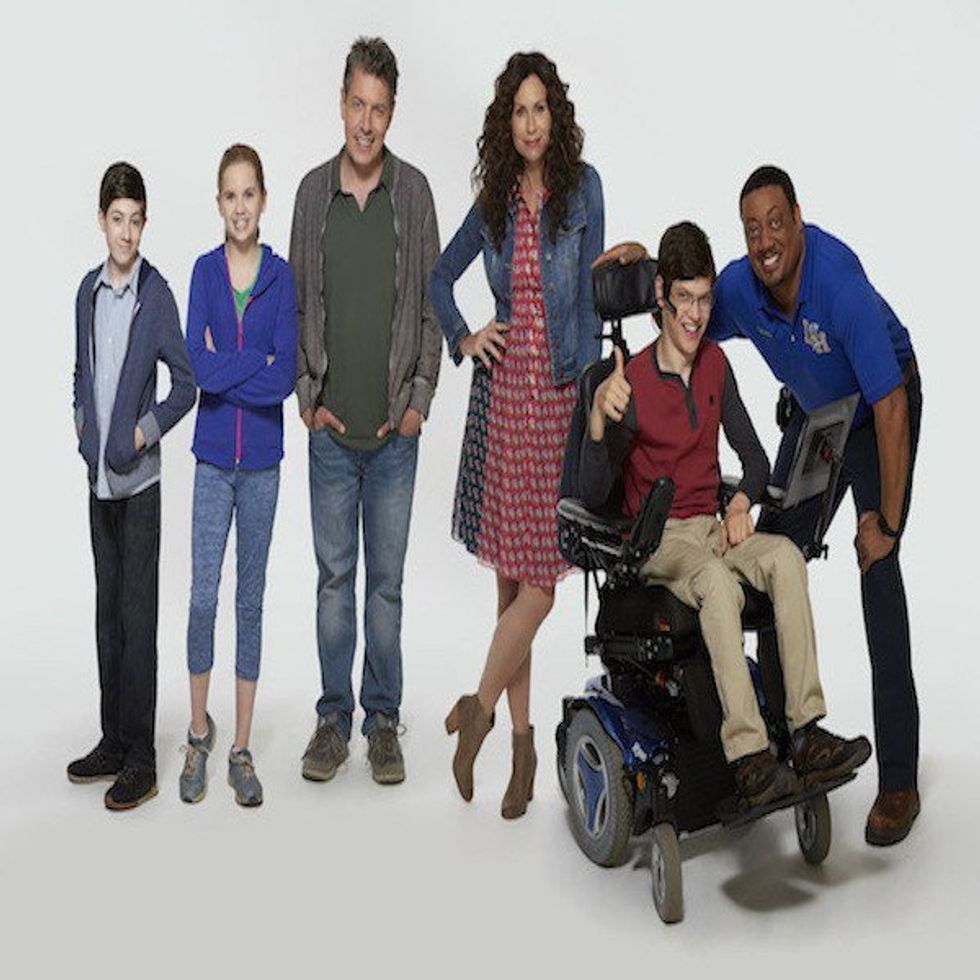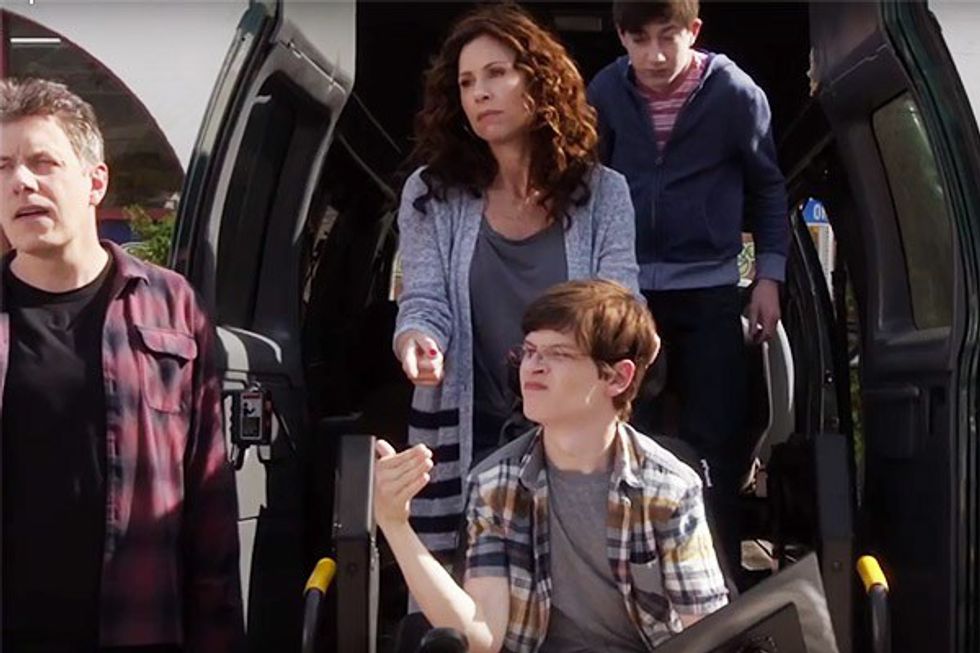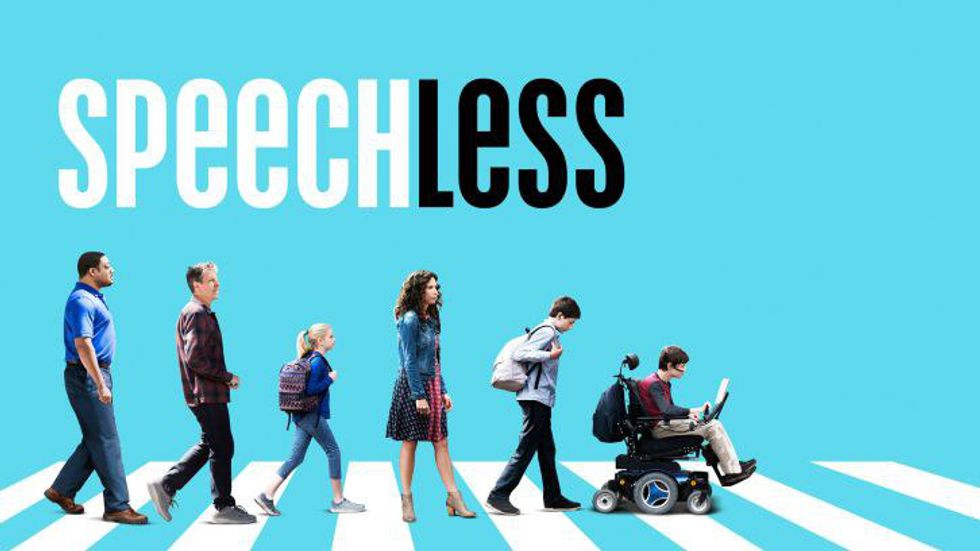In its very first moments, "Speechless" makes no qualms of informing us of the title's ironic flare-- screaming at the top of its lungs in triumphant fashion. The DiMeo Family is anything but silent. Screeching to a halt in the parking lot of a fast food restaurant, two teens stare rudely as JJ (Micah Fowler), a sixteen year old boy with cerebral palsy, is lowered onto the wheelchair lift of his family's van. JJ responds by flipping them off. Though, without the digital articulation to separate his fingers, his mother (Minnie Driver) translates for him. "That's the middle finger," she quips, to make sure the jerks are fully aware that they're being insulted. The moral here: Communication can be hard, but with good social support you can let everyone know exactly what you mean.
Highlighting humanity in big bold letters, "Speechless" has arguably become one of the most important shows about disability in the history of television. This isn't merely a hyperbole either. The show, whose story features central characters with disabilities, actually features actors with disabilities. Offering the rarity of well informed and authentic storytelling.
To quote recent studies in the past year, The Ruderman Foundation revealed that 95 percent of all television characters with disabilities are being played by able bodied actors, while The Annenberg Foundation found that less than 3 percent of speaking or named characters in more than 800 films analyzed were shown to have a disability. Despite the fact that there are more than 56 million disabled Americans, spread across every demographic, such stories are very few and far between and are so often, when they're even told, being told badly.
The best thing about "Speechless" lies at the heart of its storytelling method. It's not just about placing disability issues more prominently on television, it's also hilarious. With no maudlin "very special episode" feel to it, or a sense that viewers are supposed to take away important life lessons, it holds primary focus on the simple fact that people with disabilities are human beings and like everyone else have specific life experiences. Life experiences that can just as easily be used to fuel a classic family centered sitcom.
Too often in popular media we are only ever seeing disability through the lens of what others believe being disabled is like. Falling into one of three common stereotypes-- objects of pity, villains, or innocent and "special" souls that must be protected. Letting the reality of humanly complex thoughts, emotions, and experiences fall at the waist side. It's extremely rare to find a narrative that looks at disability from a human lens and "Speechless" seems to want to be one of those appreciated rarities.
A diamond in the rough.
JJ isn't a token object of inspiration-- the Pilot itself openly pokes fun at this phenomena time and time again in a ripe, bittersweet fashion. He has his likes and his dislikes, one of which being his original voice aid, before Kenneth (Cedric Yarbrough), which calls for hilarious antics. He has an impeccable sense of humor. But most importantly, he has a very fierce sense of identity and has no qualms with calling out anyone who tries to fit him into a mold.
One of his original leading questions posed to his sister, "Will my voice be able to help me talk to girls?"-- proves every single point this show is trying to make. Nothing about JJ makes him alien. He's not an outsider or a metaphoric symbolism... He's like any other teenage boy.
The actor who plays JJ, Micah Fowler, has cerebral palsy. Not only is he charming and an absolute joy to watch on screen, but he also adds a whole new layer to inclusive television. He is bringing a very prominent voice to one of the few characters to ever be portrayed on primetime with a disability. Allowing a representation that has so often been lost.
Representation is wildly important. It's life changing. When you see yourself being represented it allows you to imagine possibilities you never entertained before. You find yourself believing that you can soar. That you can climb any mountain. Inspiring you to not only believe in yourself in a broader sense, but in your own agency and intrinsic worth as a whole.
"Speechless" presents a comedic, but never mocking, take on a non-speaking disabled teen and his family. If the writers and actors keep listening to people with disabilities, and encouraging other Hollywood creators to do the same, the series has a chance to show that you can make audiences laugh while simultaneously changing the way people see their stories being told in wider media.
"Speechless" can become one of the loudest, most influential voices to modern television. Finally making heard the message of inclusionary storytelling.






















